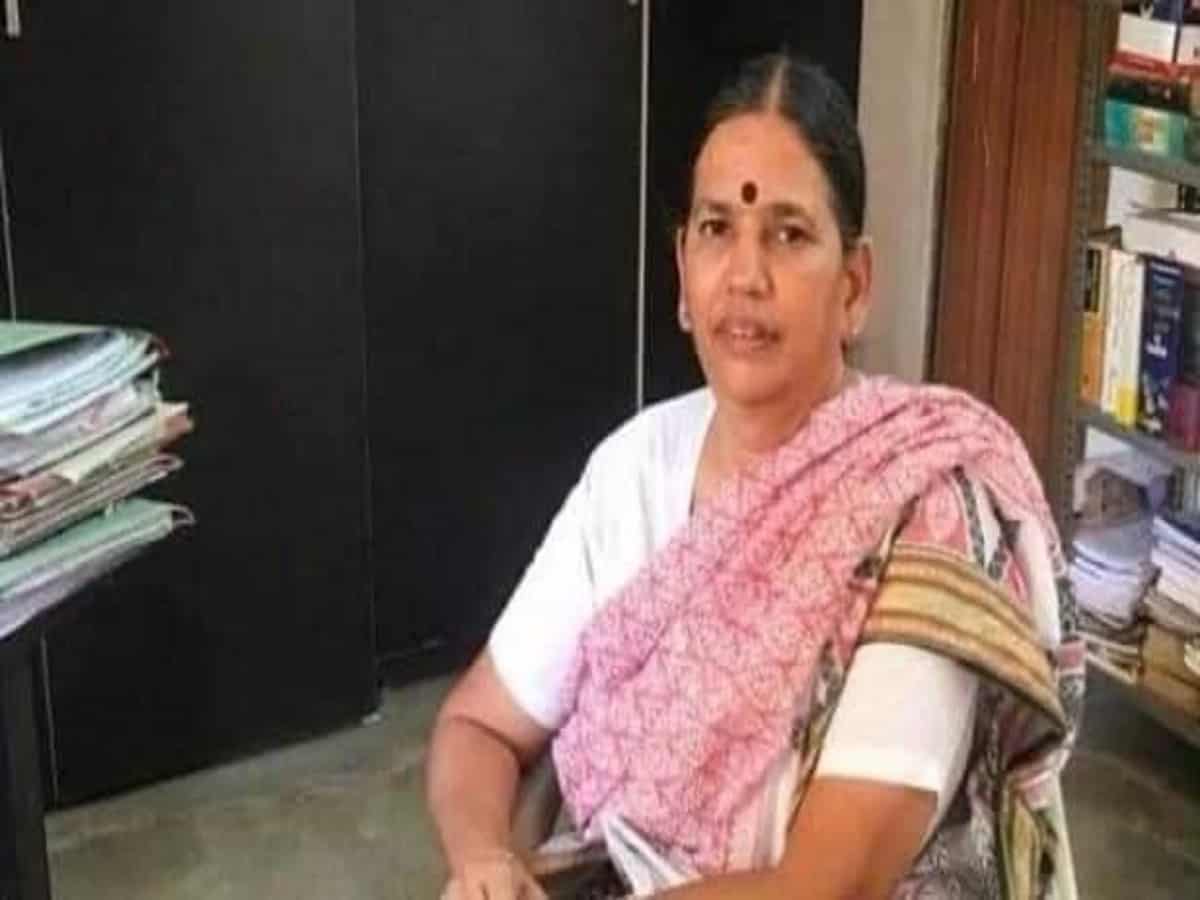Mumbai: A special NIA court on Wednesday held that jailed lawyer-activist Sudha Bharadwaj, who has been granted default bail by the Bombay High Court in the Elgar Parishad-Maoist links case, to be released from prison on furnishing a surety of Rs 50,000, but imposed a slew of conditions on her, including not leaving Mumbai without permission and surrendering passport.
The court also asked her not to indulge in any activity “similar to the activities on the basis” of which an FIR has been registered against her for offences under the IPC and the UAPA (Unlawful Activities Prevention Act).
Bharadwaj, who is in jail for more than three years, is currently lodged at the Byculla prison in central Mumbai.
As per her lawyer, she will be released from the prison on Thursday morning as bail formalities could not be completed before the deadline of 5 pm on Wednesday.
The Supreme Court had on Tuesday dismissed the National Investigation Agency (NIA)’s appeal challenging the Bombay High Court order granting her bail.
On December 1, the high court had allowed Bharadwaj’s plea seeking default bail in the case. It had, however, directed the special NIA court, which is hearing the case, to decide her bail conditions and release date.
Accordingly, the activist was produced before special judge D E Kothalikar, who set the conditions for her release. As the proceedings began on Wednesday, Bharadwaj’s lawyer Yug Chaudhary insisted on low bail amount, saying she won’t abscond.
He also urged the court to allow her to move between Mumbai and Chhattisgarh, where she is a practicing lawyer. However, the special court ruled the accused cannot leave the city without its permission. The accused shall reside in the jurisdiction of this court, the judge said.
The court held that Bharadwaj be released on furnishing a personal bond of Rs 50,000 with one or more solvent sureties of the same amount. It also directed the accused to inform investigating agency NIA as well as the court about her place of residence, contact number, and contact of at least three blood relatives.
The court directed her to attend proceedings of the trial and ensure the trial was not protracted due to her absence. “She shall not make any statement regarding the proceedings,” the court said.
The judge further directed Bharadwaj to not make any statement regarding the proceedings, which is pending, in any form of the media – print, electronic or social.
The court also asked her not to make any attempt to establish communication with co-accused or any other person involved directly or indirectly in activities mentioned in the FIR.
She is not allowed to make any international call to any person indulging in similar activities as alleged against her, the court said.
“There shall not be any gathering of visitors, other than near relatives, where the accused shall reside (which should be) within the jurisdiction of this court,” the special judge held.
The court also asked the lawyer-activist to surrender passport and not misuse the liberty granted to her.
Bharadwaj was arrested in the Elgar Parishad-Maoist links case in August 2018 under the provisions of the stringent anti-terror law UAPA.
Bharadwaj is the first among 16 activists and academicians arrested in the case to have been granted default bail.
Poet-activist Varavara Rao, another accused in the case, is currently out on medical bail.
As per law, once the maximum period, that is, 60, 90 and 180 days from arrest, provided for an investigation in a case is over and no charge sheet is filed, the accused becomes entitled to be released on bail, which is called the ‘default’ bail.
The case in which Bharadwaj and others have been arrested relates to alleged inflammatory speeches delivered at the Elgar Parishad conclave, held at Shaniwarwada in Pune on December 31, 2017, which the police claimed triggered violence the next day near the Koregaon-Bhima war memorial located on the city’s outskirts.
The Pune police, which initially handled the case, had claimed the conclave was backed by Maoists. The probe in the case was later transferred to the NIA.

